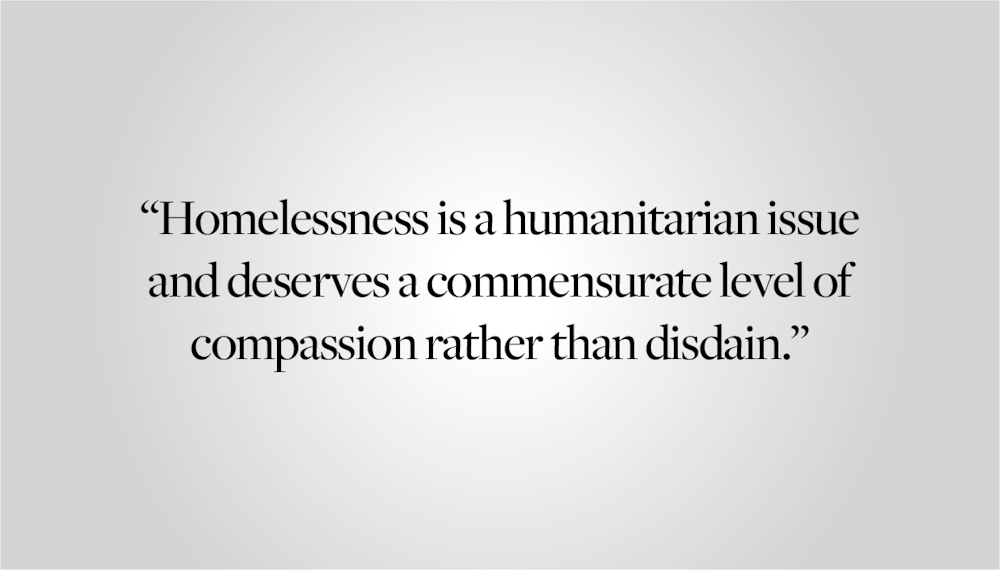One of the most obvious yet unspoken aspects of our community on College Hill (and across the United States) is the ongoing issue of homelessness. Within the Brown community and in cities across the U.S., there is a collective attitude of wariness, fear and outright disdain towards people experiencing homelessness. Rather than extending basic respect and compassion, many choose to avoid eye contact and ignore their very existence. Homelessness is a humanitarian issue and deserves a commensurate level of compassion rather than disdain.
Homelessness is a complex issue chiefly driven by a nationwide housing crisis. This crisis has been exacerbated by COVID-19-related issues, including an initial sharp rise in unemployment coupled with on-and-off eviction moratoriums. A large amount of the stigmatization of homelessness is related to stereotypes and assumptions regarding the circumstances of people experiencing homelessness. People experiencing homelessness are often considered victims of their own circumstances rather than an unjust housing system. Some claim that homelessness is a direct result of addiction or poor judgment. While these justifications cannot be entirely refuted, they place blame on the individual rather than the system. Wages have stagnated since the 1970s while the cost of living has steadily risen, making many U.S. cities such as San Francisco and Seattle almost unlivable even for people who make a steady income.
Further, the criminalization of homelessness is ineffective and insensitive, ignoring the lack of affordable housing in the U.S., which is a humanitarian issue. With the volatility of the housing market, long-term wage stagnation and financial concerns related to the pandemic, a great many of us can experience homelessness faster than we think possible. Therefore, policies that restrict where people experiencing homelessness can live and sleep are not only ineffective but also cruel and uncaring. Rather than helping the human beings whose lives have been affected by the difficulties of homelessness, these policies only serve to show a growing annoyance from the housed population with the mere existence of people experiencing homelessness.
It is also important to recognize the fact that homelessness disproportionately affects racial and ethnic minorities and people with disabilities. Resentment and disdain towards the homeless population are not only unfair because of the dehumanization of these individuals, but also because they fail to consider how systemic racism and ableism can lead to homelessness. Black and Indigenous peoples are grossly overrepresented in homeless populations, which can be attributed to less generational wealth than white people as well as discriminatory housing policies such as redlining.
It is important that we Brown students view homelessness in our community as a dire issue that needs to be resolved via systemic change rather than as a nuisance that needs to be limited. HOPE at Brown through the Swearer Center has done a spectacular job of shining a light on and destigmatizing homelessness in Providence. However, much remains to be done to support those experiencing homelessness in our community. It is a privileged position to regard the presence of people experiencing homelessness as a bothersome obstacle rather than a difficult circumstance for fellow human beings. Although this issue may be difficult to confront for some of us, especially as homelessness has become increasingly normalized, we cannot continue to ignore the reality. However uncomfortable it may be to think about homelessness, it is a thousand times more difficult to actually experience it. It is time to stop avoiding eye contact and ignoring the presence of people experiencing homelessness simply because it makes us uncomfortable to consider our different circumstances. We must treat people experiencing homelessness with dignity and respect because, quite simply, they are human beings who deserve it.
Yasmeen Gaber ’23 can be reached at yasmeen_gaber@brown.edu. Please send responses to this opinion to letters@browndailyherald.com and other op-eds to opinions@browndailyherald.com.





